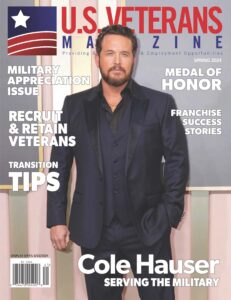As a spouse, you manage the unique challenges of military life. You may take on new roles and adapt to new schedules. Department of Defense has resources to help you and your family thrive.
The Military Family Readiness System
You may choose to live on or off the installation. Either way, your Military Family Readiness System is your go-to source for support. It’s a network of programs and services with resources to help you navigate military life.
Use it to find moving and relocation help, new-parent support, financial fitness content and career counseling.
Networking and Financial Programs
- The Military and Family Life Counseling Program is free and confidential. It provides short-term, non-medical counseling for service members, their families and survivors. Counselors understand military life, and they can help you manage it. Reach out with questions about various topics, including parenting, moving, deployment, work or the death of a loved one.
- The Exceptional Family Member Program (EFMP) offers services and resources for families with special needs. EFMP helps families navigate medical and educational systems. Visit or call your Military and Family Support Center for information and assistance.
- The MilSpouse Money Mission offers a Money 101 course and a range of tips to educate and empower military spouses. Use it to elevate your family with smart money moves.
- Branch-specific relief programs, such as Army Emergency Relief and the Air Force Aid Society, provide no-interest loans for financial emergencies. These programs must be applied for by your service member but can benefit the entire family.
Careers and Educational Tools
- The Spouse Education and Career Opportunities program provides education and career guidance for military spouses worldwide. Create and use your MySECO account for resources and tools for all career stages, including training, job readiness and career connections through the Military Spouse Employment Partnership.
- The Military Spouse Career Advancement Account (MyCAA) scholarship program can help military spouses get credentials to achieve career goals.
- American Job Centers (AJCs) provide free help to job seekers for various career and employment-related needs. Nearly 2,400 AJCs, funded by the U.S. Department of Labor’s Employment and Training Administration, are located throughout the United States.
- Skillsoft, in partnership with the USO, is offering active-duty members, veterans and military spouses full access to their collection of training and certification resources. Classes in business operations, DNI, management, sales and marketing, security and programming are just a handful of the many courses available.
Helpful Tools
- Military OneSource is an excellent resource for information and services. It is available 24/7, anywhere in the world. Access it online or by phone at 800-342-9647 or use OCONUS dialing options.
- Plan My Move at MilitaryOneSource.mil lets you create custom checklists and guides you through tasks.
- Plan My Deployment at MilitaryOneSource.mil helps you prepare for deployment. It breaks down each phase and provides planning tools and helpful tips.
- MilitaryChildCare.com is a website the Department of Defense sponsors. Use it to find military-owned or approved child care anywhere in the world. Fee assistance is available for those who qualify.
- Homes.mil connects service members and their families with community housing rental listings near military bases.
- EFMP&Me is a digital tool for families with special needs. It provides EFMP information 24/7 for busy military parents. Families can learn about support services, preparing for a move or deployment, education or medical needs and adjusting to new life situations.
- Build A Sign is a business that makes sign and banner creations for “welcome home” events quick and easy. They provide their services free to military families, only requiring you to cover shipping costs. Visit BuildASign.com/troops for details.
No matter what stage your family is at in your military journey, you have someone in your corner, and there is always help when you need it.
Sources: U.S. Army, CareerOneStop, Military OneSource, Sandboxx, Skillsoft



